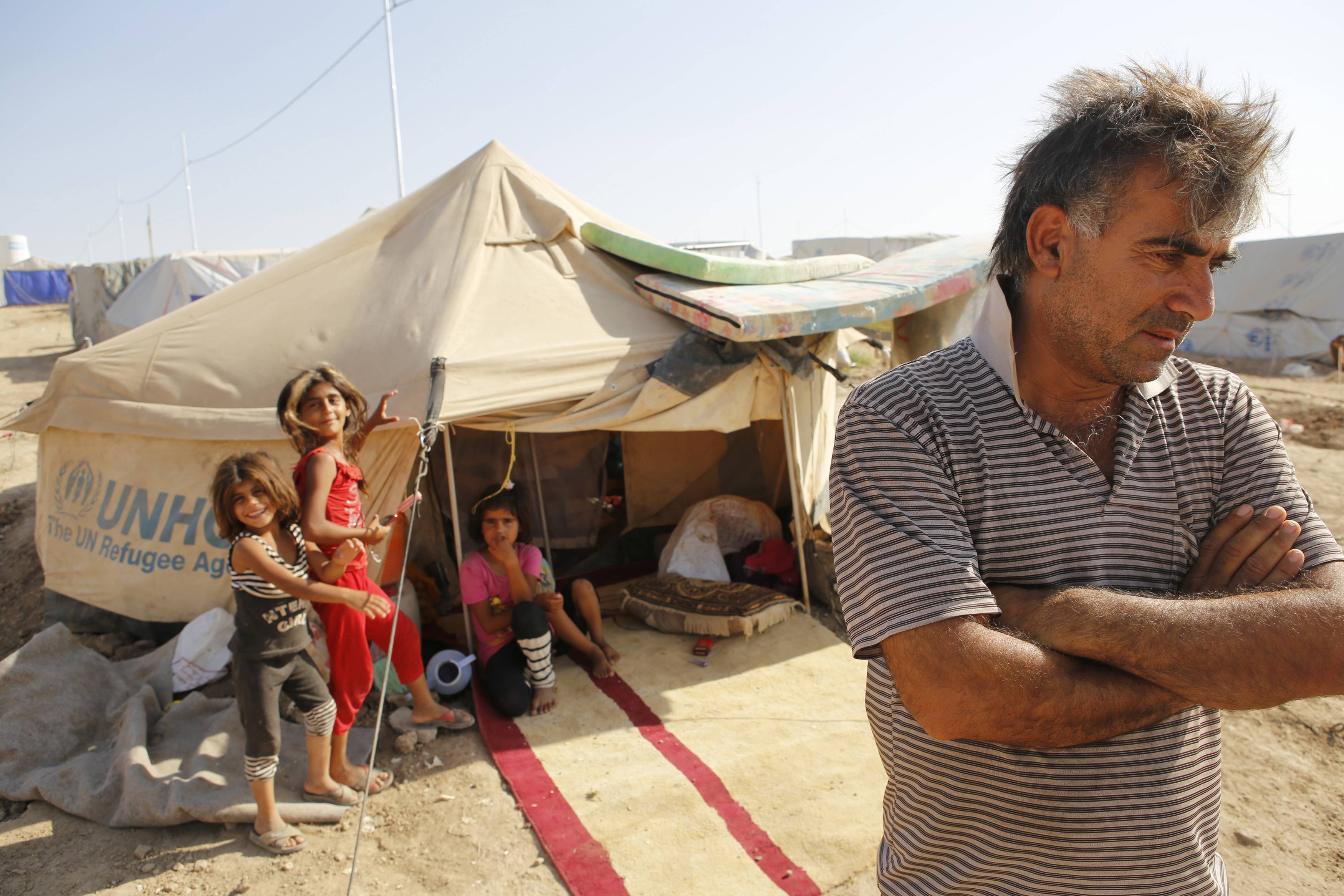Latest NEWS
- Aswat Masriya, the last word
- Roundup of Egypt's press headlines on March 15, 2017
- Roundup of Egypt's press headlines on March 14, 2017
- Former Egyptian President Hosni Mubarak to be released: lawyer
- Roundup of Egypt's press headlines on March 13, 2017
- Egypt's capital set to grow by half a million in 2017
- Egypt's wheat reserves to double with start of harvest -supply min
- Roundup of Egypt's press headlines on March 12, 2017
UN resumes food aid for Syrian refugees after raising more funds

A Syrian refugee, who fled from the violence in Syria, stands outside a tent as his children look on, at the Domiz refugee camp in the northern Iraqi of province Dohuk July 3, 2013. REUTERS/Ahmad Mousa
By Chris Arsenault
ROME (Thomson Reuters Foundation) - The United Nations will resume food aid to Syrian refugees in neighbouring countries, following a campaign to raise funds for a halted programme offering food vouchers, the World Food Programme (WFP) announced on Tuesday.
About 1.7 million refugees in Jordan, Turkey, Lebanon, Iraq and Egypt will have their electronic food vouchers topped up by mid-December, so they can purchase food in local shops.
The announcement came after a campaign by the WFP seeking funds to cover a $64 million shortfall which had forced the agency to suspend the programme at the beginning of December.
"There was jubilation among the refugees after the announcement," WFP spokeswoman Abeer Etefa told the Thomson Reuters Foundation.
Syrians facing the winter cold will again be able to feed their families, she said, although there is concern among the refugees about what will happen at the end of January, when the current funding dries up.
The WFP has raised $80 million from private individuals, countries and companies thanks to a social media campaign.
"This outpouring of support in such a short time is unprecedented," WFP executive director Ertharin Cousin said in a statement.
"We're especially grateful to the many individual members of the public who reached into their own pockets to send whatever they could to help Syrian refugees who have lost everything."
More than 4 million people internally displaced inside Syria are receiving food packages, including cooking oil, lentils and rice, Etefa said. Refugees in neighbouring states are given electronic vouchers.
"The Syria emergency has been the largest use of this voucher programme ever," Etefa said.
Displaced Syrians tend to live in the poorest areas of Jordan, Lebanon and other neighbouring states, she said. The electronic cash helps stimulate local economies, easing tensions between the refugees and their hosts.
In Lebanon alone, 350 local merchants accept the electronic vouchers, while Jordanian supermarkets have set up branches in that country's large refugee camps to benefit from the programme.
(Reporting By Chris Arsenault; Editing by Ros Russell)










